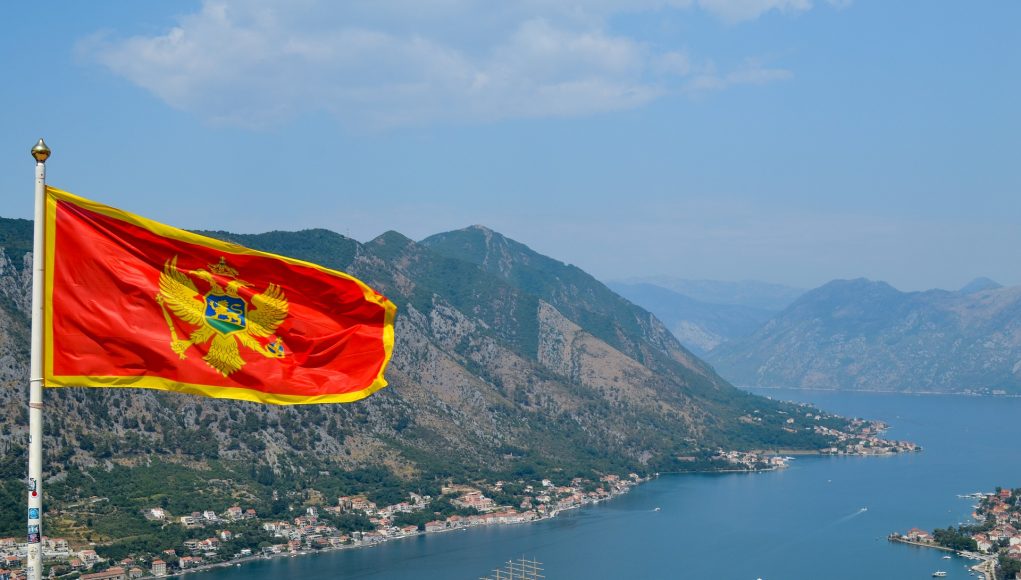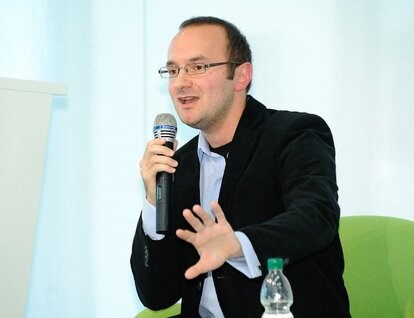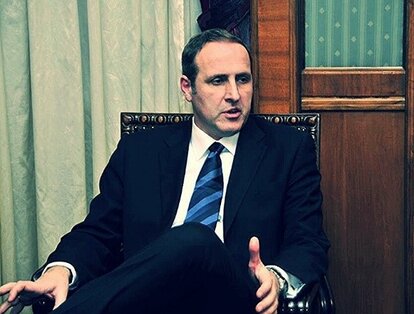Interview
Three Questions – two interviews

This week we spoke with MP Andrija Popović, Chairman of the Liberal Party of Montenegro, and with prof. Vladimir Pavićević, from the List “Peace is our Nation” and leader of NGO "Policy Research Society" Mr Popović and Mr Pavićević took part in the elections on August 30, Mr Popović as a candidate of the governing Coalition, Mr Pavićević for the opposition.

Vladimir Pavicevic
Mr. Vladimir Pavićević
FNF: In your opinion, what are the main reasons for the victory of the opposition coalition?
Vladimir Pavićević: There are two main reasons.
One relates to the actions of the opposition, which appeared in three logical columns, allowing any citizen who was dissatisfied with the performance of the DPS to have their favourite in the opposition. In this election, none of the opposition voters could say that they had no one to vote for. Add to this the fact that there was a wordless agreement within the opposition alliances not to attack each other, that mutual solidarity was practised in cases of repression by the DPS, and that there was cooperation in terms of control and supervision of the electoral process, and it was clear that the opposition was mature at the time of the election and appeared convinced that it had a good chance of winning.
The second reason relates to the DPS itself, which had made mistakes, particularly in the last year and a half, which gave the impression that it was harming itself by its actions. Through the behaviour of its representatives, in particular the Chairman of the DPS, it contributed to the victory of the opposition alliances in the parliamentary elections on 30 August.
FNF: In which policy areas do you think there is the most urgent need for action?
Vladimir Pavićević: The fight against corruption and organised crime is a key area for the transformation of Montenegrin society and state into a modern community based on the rule of law. The design of reforms in the field of education policy and a market-oriented economy are the following priorities.
FNF: The new government will obviously be composed of representatives of different ideological convictions. How can a common programme of this government be achieved? Where do you see their common ground and where do you see the greatest differences of opinion?
Vladimir Pavićević: The reform orientation of the new democratic government of Montenegro will be the fundamental integrating point of the partners in the future government. It will be based on the idea of the Europeanisation of Montenegro and full membership of the European Union and the idea of restoring a just and reconciled society in a deeply divided community where a sense of injustice is widespread.
The ideological diversity of the future government also means that there will often be compromises, which is also part of the development of a democratic political culture in Montenegro.

Andrija Popovic
FNF: What do you think are the main reasons for the defeat of the ruling coalition, which is reflected in the loss of six of the 36 seats in the Montenegrin Parliament?
Andrija Popović: When the ruling coalition decided to tackle the problem of clericalism and regulate the status of religious communities in Montenegro, we knew that this would not be an easy task in a patriarchal society. However, we have never believed that our mission is to win public affection and act populist, but to be a progressive force and to develop, educate and reform society. Thus, the main reason was the strengthening of clerical nationalism and the role of the Serbian Orthodox Church in public life, which particularly benefited the opposition in Montenegro, which is traditionally pro-Serbian and pro-Russian in orientation, as opposed to the pro-European majority consisting of socialists, social democrats, liberals and parties of national minorities. We have concrete evidence of the influence of the church and the power centres in the region on this election campaign, both financially and through a hybrid war of fake news and the spread of disinformation and panic. This is precisely why our responsibility to maintain the Euro-Atlantic progress made so far by the state is even greater. Nor should we underestimate the impact of the crisis caused by the corona virus, which has had a serious impact on tourism in Montenegro and in other Mediterranean countries, which is the country's main economic sector. Most importantly, it has shown and proved that Montenegro has democratic capacities that the change of government has taken place normally and without any problems, and that the previous government has survived solely thanks to a superior programme and the idea of a European and multicultural, multi-confessional Montenegro.
FNF: What policy issues will the LPCG address in the coming legislature, and what will be the core of its programme activities?
Andrija Popović: The Liberal Party has achieved important programme goals in two mandates. Montenegro has become a member of NATO, we have opened all chapters in the EU accession negotiations, adopted a law on same-sex partnerships and a law on religious communities, and regulated two sensitive areas of human and civil rights in a liberal and progressive way, which is unique in the region. That is why at our last party congress we focused our programme on economic and social challenges. We have the idea of promoting the reduction of bureaucracy, questioning tax policy and promoting the reduction of tax and other charges, improving the business environment, but also implementing the idea of the information society and electronic public services, which would lead to a reduction in administration. We will of course continue the fight against clericalism, populism and the strengthening of the right forces.
FNF: The LPCG has a rich experience of participation in the governing coalition. Based on this experience, what would you advise the next government to do? What should it pay attention to, especially at the beginning of its work?
Andrija Popović: The Liberals were the opposition for 8 years during several mandates and then the ruling party for 8 years. From this perspective, we can follow all events in society with complete serenity and go our way completely unencumbered, heralding a new era of liberalism in Montenegro. It will be a difficult challenge for the new government to take up all the reins of power within a short period and to take up its activities with full capacity in times of epidemic and crisis, but also of a probably fragile majority that will keep it in place. I advise them not to fall into the trap of bureaucracy, populism and nepotism by fulfilling the wishes of their parties and their membership, thereby placing an additional burden on the state apparatus. I also advise the smaller partners in the new government, who are centrist and democratically oriented but have very little power, to pay close attention to the consequences of having supported a right wing and clerical-nationalist government headed by controversial leaders known for their extremist views. The Liberals will follow them closely from within the opposition and so will the democratic public.